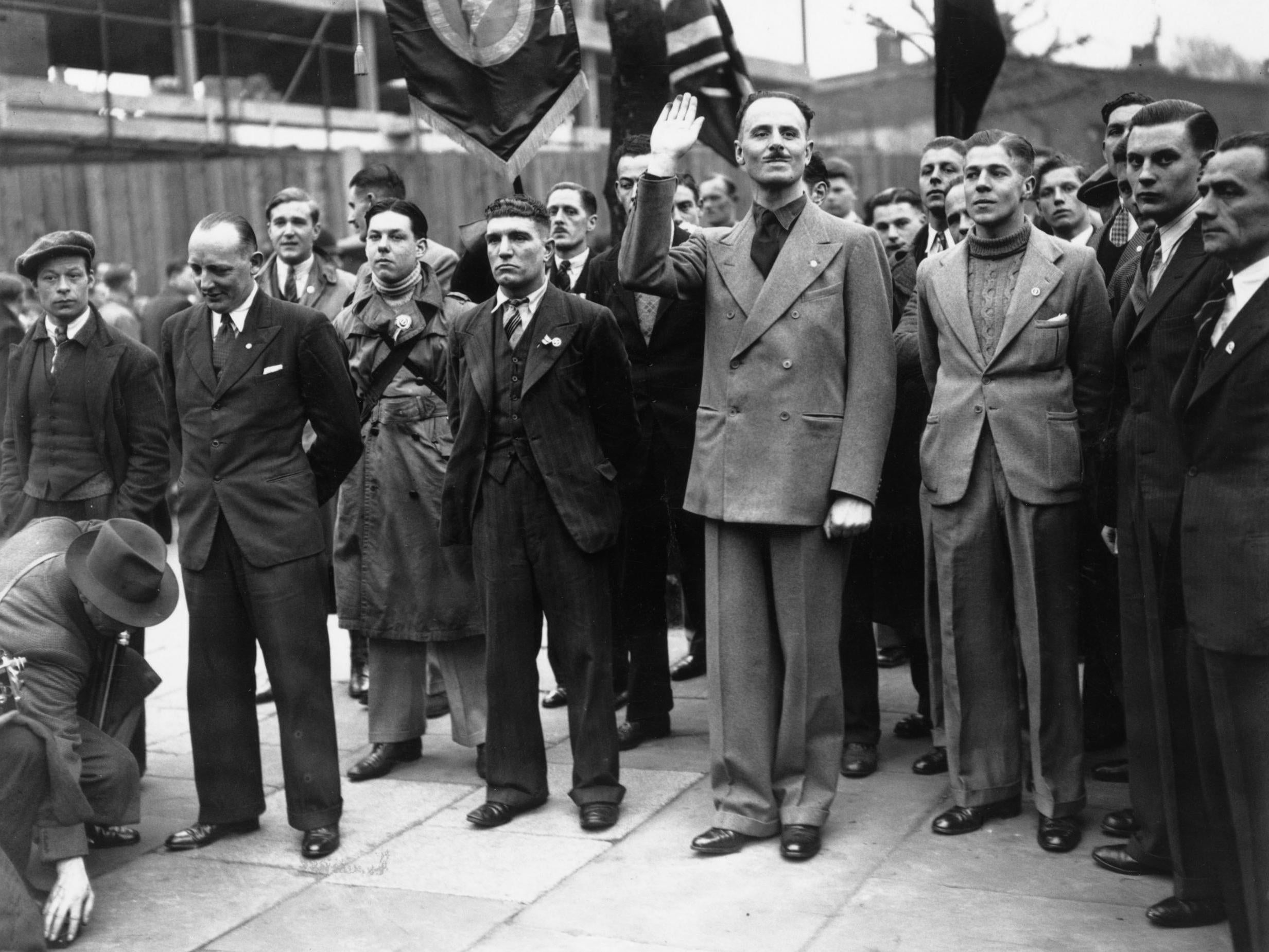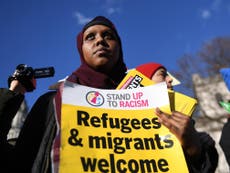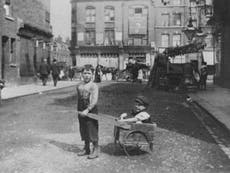80 years ago, the British Union of Fascists was forced to dissolve. This is what its demise can teach us today
We can create the same long-lasting change if we harness the values that brought us victory in 1940, writes Amos Schonfield


Many of the key workers we thank and applaud are migrants. They are the people to whom we have subcontracted the care of the ill and elderly, those who keep our supply chains open, and often those who are disproportionately paying the highest price in the process.
Just a few months ago, these were the people considered “low-skilled” – and they were going to be shut out of post-Brexit Britain for it.
With even Piers Morgan describing how migrant NHS nurses “enrich our country” and hoping for a “different sentiment” toward immigrants in the wake of the pandemic, we are seeing how this crisis has the capacity to change our political climate. Following the Immigration Bill debate this week, which passed its second of three readings, we would be wise to cast our minds back to the 1930s for a potential path through this merciless campaign.
The British Union of Fascists (BUF), the party of Oswald Mosley, boasted around 50,000 members at the peak of its powers. The party enjoyed the support of the Daily Mail, under the leadership of Lord Rothermere, which ran the headline “Hurrah for the Blackshirts!” in 1934 in reference to the BUF’s paramilitary group. It was only a handful of years later, on 23 May 1940, that the BUF was disbanded by government decree. While, in hindsight, this far from eradicated fascism from our politics, the manner in which it came about – through a perfect storm of public pressure, political will, and crisis – can shed light on the moment that we find ourselves in now.
The BUF that was proscribed under emergency legislation was a shell of its former self, with fewer than half the number of members than its peak. Long-running anti-fascist campaigns came to a head when the BUF were beaten back by protesters at the 1936 Battle of Cable Street, including the local Jewish community, as well as other minority groups and groups across the left that came out in solidarity. As the Second World War began in earnest in early 1940, the global crisis intertwined with a national one in which Neville Chamberlain resigned as prime minister to be replaced by Winston Churchill. Two weeks later, the BUF were gone and their leadership held in internment.
On the 80th anniversary of this historic moment, that victory may give us the keys to once again changing our political landscape. The hostile environment policy announced by Theresa May, then home secretary, in 2012 tapped into xenophobic sentiment that sought to close the door to both migrants seeking entry and those living here already.
Today’s incarnations of the BUF, ranging from the English Defence League to Ukip, have seized this opportunity to push for even harsher treatment of migrants, declaring Britain to be at “breaking point”. However, those seeking to welcome and advocate for refugees and migrants mobilised effectively during the so-called Refugee Crisis, resulting in mass demonstrations in 2015 and 2016. The public response to this policy was focused further by the Windrush scandal, where the deportation of over 80 individuals resulted in an apology and resignation from May’s successor Amber Rudd. Both of these flash points invigorated many people and pushed them into action, myself included, but these issues continue even when they are no longer on our front pages. The hard work of the committed, not least those with lived experience, needs the kind of sustained public awareness that existed during 2015 and 2016 to make lasting changes. We saw yesterday, with the government's U-turn on the immigration health surcharge, how effective that pressure can be.
The hard work of leaders such as Lord Alf Dubs, himself a child refugee through the Kindertransport, was able to create the political will to make small dents in this policy, enabling child refugees to enter the UK and reunite with their families. The coronavirus crisis has sparked the "You Clap For Me" video of migrant NHS workers, campaigning work from Hassan Akkad, the filmmaker and activist displaced from Syria now working as an NHS cleaner and more. However, this moment has perhaps created the political will to make deeper and more long-lasting changes for all migrants seeking to make the UK their home. These include the lifting the ban on asylum seekers working, so that they are able to live on more than the meagre £5.39 a day, or the end to indefinite migrant detention. It will take political courage for politicians to support these vital reforms.
80 years ago, it took public solidarity and strength in the face of a world war to push fascism out of our politics at home. Today, the far-right may be in the mainstream of our politics and society, but we can create long-lasting change if we harness the same values that brought us victory in 1940. The crisis we find ourselves in has opened up that opportunity. This is the time to capitalise on the years of public pressure to target the growing movement to change the way we treat all refugees and migrants, whether they are holding up our health and social care system or not.
Amos Schonfield is the founder of Our Second Home, a youth movement for refugees and asylum seekers, and a coordinator at Student Action for Refugees






Join our commenting forum
Join thought-provoking conversations, follow other Independent readers and see their replies